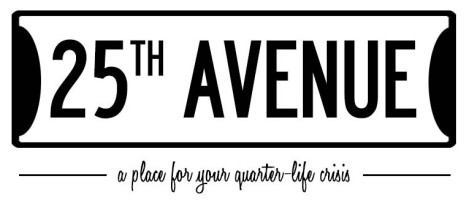
Don’t believe the headline: How to not look stupid on Facebook
I clicked on a Facebook link to a Huffington Post article yesterday about Donald Trump. That man gives the press so much outrageous content that it is no wonder I thought it was true.
The article was staunch journalism…a bunch of pictures of tweets that had supposedly come from Trump’s Twitter account bashing everyone from Rosa Parks, to Gandhi to Jesus. I read this article like I read most articles that take people’s tweets and use them for traffic – quickly and without much critical thought. And because The Donald is so crazy I came to the conclusion that, “Of course he wrote them.” It wasn’t until I got to the bottom of the story and saw a disclaimer stating that the tweets were made up that I realized it was fake.
Donald Trump is a little bit of a crap shoot when it comes to discerning true vs. false, but this just goes to show:
- How important it is to read the whole article.
- How little notification publications need to give about things being satirical.
- If I, distruster of all things on the internet, was almost had by this, then the Huffington Post may be solely responsible for the implosion of Trump’s campaign.
That situation doesn’t happen to me often, but I can’t even tell you how many times a week I want to blow my brains out after having conversations with intelligent people that state a rumour as fact based on something they saw on Facebook. I say ‘saw’ instead of ‘read’ because let’s be honest, how many people actually click through and read the article – in full or in part? Not many.
“Well, my very intelligent lawyer friend was the one who shared the post, therefore it is true.” False.
Statistics show us, above anything else, we are more prone to trust what our friends and family say about things than anyone else – making Facebook a f’ing mine field of chaos when people start sharing or posting things that are incorrect.
How do we then navigate that minefield? As a person who has spent the better part of a decade scouring the internet for tantalizing stories I can tell you, most of what you read is the truth bent like a bungee cord, an opinion not based on fact or biased as hell.
It is up to you to critically think about what you are reading and come to your own opinion. There are, however, a few ways to scrape out the garbage right away without having to read everything and then reflect for an hour to assess whether it is true.
Here are the quick steps you can use to weed out the bullshit you see on Facebook so you don’t look like an idiot around the water cooler when you state that the Liberal government has decided to buy every single refugee coming to Canada a furnished house and a minivan.
1. Look who posted it
Let’s be honest, we are all friends on Facebook with some people with ‘out there’ opinions or a general lack of common sense. If they posted an article, it is in your best interest to either A) ignore it completely or B) investigate it further – but never take these at face value. That being said, you should never take anything at face value, but may be a little too much to ask.
2. Look at the publishing outlet
After we decide that the sharer is legit, we need to figure out the outlet that is posting it. This will help us decided whether the content is more likely to be true, false or a giant exaggeration.
Classify the outlet based on the following chart:
- Reputable outlet
National Post or CBC. An outlet that is held to a high ethical standard that would get into more legal trouble if they were printing false or defamatory information. That doesn’t mean that these publications won’t publish things that are biased (let’s face it, no media is unbiased) but they will be closer to a balanced statement. - Biased outlet
Fox News or The Guardian. Some outlets cater to one group of people and tell their stories in a way that will appeal to their demographic. For example, Fox News caters to the conservative Americans, while The Guardian has a more liberal appeal. Get to know the outlets and what they stand for. - New Media
Vice, Huffington Post, Gawker, BuzzFeed…the list goes on of online only publications that push the boundaries when it comes to journalism. They are more prone to ‘click-bait’ type article headings because their revenue is dependent on you going to their website. Their writers are often freelancers or in some cases unpaid people who could be untrained and possibly not running their fact checks like they did in the good old days. They generally write for a younger audience and their stories are often very polarizing. - Blogs
These do not fall into new media because they are generally written by one person, who reports to no one. Blogs are the wild west of the internet, anything goes. Not all blogs are bad, but be mindful of when you are reading one. Who is the person writing it? Is someone paying for this content to be published (this is how a large number of bloggers make a living)? And what sort of expertise do they have in the area they are writing about? - Satirical outlets
How many times have you seen a satirical article shared online as fact? I have a moment of sympathy for those people because they look like idiots, but then I get enraged because the cycle will not stop with them – it will continue and the world will get dumber and dumber until we all die in a giant unvaccinated heap. The Onion, The Beaverton, The Spoof…just to name a few, are ones that you should look out for. If the title seems like it couldn’t possibly be true – then it probably isn’t.
After classifying the article you may not need to do anything else. You may deem it false, just by this step.
3. Read the article
SHOCKING! If you do nothing else, do this one step. Read the article. I don’t know about you, but there is no way I can get enough facts to talk about something in conversation by reading a one sentence headline. I can also not determine if something is false by a headline.
4. Look for other opinions
Most of the time you can stop at reading the article to understanding the situation and/or the opinion stated, but other times you may think there is too much bias on the piece or it didn’t explain the situation fully, and you’ll want to look for other opinions on the matter. I would always recommend, if you are going to be taking this as a topic to the water cooler, that you do your own research too. Google it. Journalists are not the only ones who have access to information anymore.
5. Read the comments
You’ve read it yourself, you’ve seen what other journalists have said about it – now read the comments. This is not a necessity, but if you think the title is at all in need of discussion, you can almost guarantee that the lunatics will come out to play in the comment section. This will be your daily entertainment.
Once you’ve completed the necessary steps and you think “This article is gold!” SHARE AWAY. If you are not willing to do at least steps one and two – please cease and desist all sharing on social media, for all our sakes.
Photo via Visualhunt.com




'Don’t believe the headline: How to not look stupid on Facebook' has no comments
Be the first to comment this post!